#chuck philips
Explore tagged Tumblr posts
Text

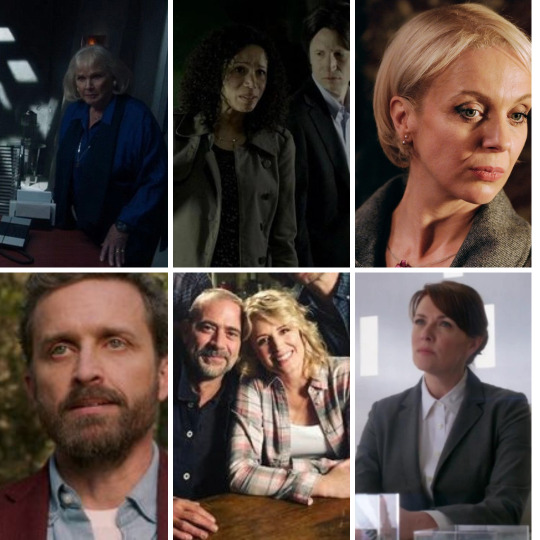
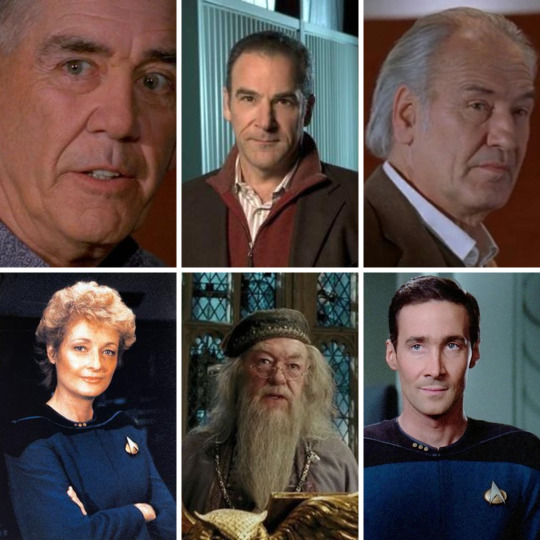

Once again adding to lists of my posts technically from tiktok but I’m cross posting here.
Can you tell I have a lot of fictional character anger? /s
#confront characters#mummy holmes#sally donovan#philip anderson#mary morstan#mary watson#charles augustus mangussen#culverton smith#john winchester#mary winchester#naomi spn#chuck spn#house md#john house#rowan chase#jason gideon#star trek tng#bruce maddox#katherine pulaski#albus dumbledore#dead poets society#mr perry#fire lord ozai#sailor moon#prince demand#jupiter ascending#balem abrasax#apparently there’s a tag limit#who knew
24 notes
·
View notes
Text
Baby Philip sketches :3
I want to consume him

#art#drawing#sketch#the owl house#philip wittebane#wittebros#wittebane brothers#emperor belos#he’s so skrunkle#pretty little guy#I’m gonna Chuck him across the damn room
15 notes
·
View notes
Text
what is that long-distance boyfriends behavior
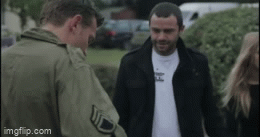
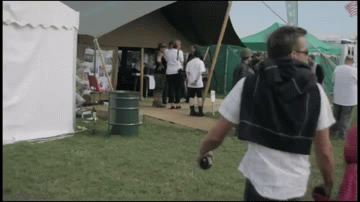

#band of brothers#bob cast#help#rereading the two only chuck/skinny fanfics on ao3 for the 6th time in a day#goin feral#chuck grant#skinny sisk#philip barantini#nolan hemmings
12 notes
·
View notes
Text







Shock Corridor (1963) Samuel Fuller
June 24th 2024
#shock corridor#1963#samuel fuller#peter breck#constance towers#larry tucker#bill zuckert#chuck roberson#john matthews#john craig#james best#hari rhodes#gene evans#philip ahn#straightjacket#the long corridor
2 notes
·
View notes
Text
spent like 20 minutes looking through my blog for some screenshots i was sure i’d taken of the 7x12 opening scenes before i realized i’d only sent them in dms. so here they are archived for eternity, along with the original messages / captions, because why not

sure also contemplating how at the very start of the episode, there were three empty seats (not counting the middle couch cushions), those being [closest to taylor], [closest to wendy], and [in between the first two], and those are respectively occupied by philip, sacker’s purse, and sacker…


going Wah about scraps here…

additionally, them watching him
#obvious taylip subtext is obvious#billions#7x12#kate sacker#taylor mason#philip charyn#taylip#and wags + axe + chuck + wendy but this isn't about them
4 notes
·
View notes
Text

#the right stuff#Philip Kaufman#sam shepard#barbara hershey#tom wolfe#1983#movies#chuck yeager#Glennis Yeager
18 notes
·
View notes
Text

From Prince Philip: An Informal Biography by Basil Boothroyd
#brf#royal anecdote#lmao all the worst parts#right on the nail phils#and my man literally just skipped over andy lol#prince philip#prince edward#princess anne#king charles iii#duke of edinburgh#ed#anne#chuck
18 notes
·
View notes
Text
toxic doomed brothers are the best dynamic
4 notes
·
View notes
Text
Where's my petition to get dark skinny jeans and converse chucks for Trevor
6 notes
·
View notes
Text
我(Philip Yancey)提過,坎波羅因呼籲大家對同性戀者要更有愛心,而受到別人辱罵。
另一朋友梅恩思(Karen Mains),由於別人發動攻勢,批評她的作品,結果失去了在廣播電台的職位。
有個自稱是「異端察驗者」的信徒,認為畢德生的新約意譯本《信息本聖經》(The Message)「篡改神的話語」,就以他為攻擊靶子。
傅士德(RichardFoster)在他的屬靈操練著作中,���於用「冥想」這類字,被懷疑是個新紀元運動分子。
寇爾森(Chuck Colson)告訴我,因為他接受「坦普爾頓促進宗教獎」(Templeton Prize for Progress in Religion),而這個獎項有時發給非基督徒,就有些基督徒寫了極其惡毒的信寄給他。 寇爾森毫不留情地批評,說:「我們的主內弟兄,恩慈之心竟然比水門事件期間的世俗媒體還不如。」而當他簽署與天主教徒合作聲明之後,寫給他的信件內容,其激烈更是有增無減。
0 notes
Text
Now, in other music industry news...
(LATimes Long Story) Column: Chuck Philips (1952-2024) singlehandedly made music industry journalism better
By Michael HiltzikBusiness Columnist

Chuck Philips
(Ted Roberts / Los Angeles Times)
Few people outside the music industry may know the name Chuck Philips, but few inside the industry will forget it.
As the leading music industry investigative reporter of his generation and a mainstay of Times entertainment coverage for more than a decade, Chuck aimed to force a celebrity-driven corner of journalism into taking seriously how the pursuit of money by industry bigwigs often left the artists themselves at the side of the road.
He may not have entirely succeeded — the coverage of celebrity lives is still a fundamental feature of music writing — but he set a standard that has seldom been matched. Chuck died last month at 71.
“There are two ways to look at investigative reporting in the world of pop music journalism,” says Robert Hilburn, who as The Times’ pop music critic and pop music editor began publishing Chuck’s freelanced stories in the 1980s. “There’s pre-Chuck Philips and post-Chuck Philips. Before Chuck, the coverage, nationally, was mostly timid and sporadic. Chuck turned it into something relentless and uncompromising.”
That’s a global perspective. Here’s a personal perspective, drawn from my working with Chuck on investigations of the music industry in 1998 that won us the Pulitzer Prize: Chuck was the most tenacious, scrupulous and principled journalist I’ve ever known.
There are two ways to look at investigative reporting in the world of pop music journalism. There’s pre-Chuck Philips and post-Chuck Philips.
— Former Times pop music editor Robert Hilburn
I had an elite Ivy League journalism degree and he held a baccalaureate in journalism from Cal State Long Beach and, before joining The Times, had been running a silk-screening business.
After we were paired on our project I stood in awe of his skill at interviewing reluctant subjects, identifying the crux of a tough story, and pursuing it wherever it led, while his rigorous sense of probity and commitment to fairness earned him the trust and respect even of industry executives who knew they were about to be skewered. I learned more from our partnership than I did with anyone else I’ve worked with over a long career.
Hilburn relates that in the early 1980s, he saw the need for a reporter to supplement the reviews and features that made up the bulk of pop coverage with reporting on the business side of the industry.
“There was no place in the budget to hire a reporter,” Hilburn told me, “so I put out the word that I was looking for a free-lance, but the field was so barren that only one person responded.”
It was Chuck Philips, who had “scant experience as a reporter — just a few stories for local music publications. Yet he had an intelligence and desire in our first meeting that stood out. Unable to hire him, I took money allocated for reviews and features to pay him by the story.”
He started with a couple of stories covering a censorship case in Florida that confronted the rap group 2 Live Crew with possible criminal and obscenity charges involving its debut album. “But Chuck didn’t just stop there, he did more than a dozen follow-up stories as new developments arose,” Hilburn said.
Few stories illustrated the compassion and empathy for recording artists that infused Chuck’s work like his coverage of the Milli Vanilli scandal in 1990. Largely forgotten now, the duo of Rob Pilatus and Fabrice Morvan had burst onto the music scene with a 1988 album titled “Girl You Know It’s True.”
The single by that name soared to No. 1 on the Billboard charts. The dreadlocked break dancers, whom Chuck later described as “a sharp-dressing dance duo on the Munich club and fashion-show circuit,” became a worldwide sensation, winning the award for best new artist at the 1989 Grammys.
The truth was that they hadn’t sung a note on the album or on stage, but lip-synced on stage and on videos to tracks laid down by freelance vocalists. They were outed at a news conference by Frank Farian, their own Germany-based producer, who evidently was trying to undercut their insistence on singing on a forthcoming release by destroying their credibility.
“Rob” and “Fab” were showered with vilification and ridicule in the music press. Not in Chuck’s stories, however. He saw clearly that they were the victims in a scam perpetrated by Farian and abetted by what his reporting indicated was the willful blindness, if not the knowing consent, of their American label, Clive Davis’ Arista Records.
A few days after the story broke, the performers granted their first joint interview to Chuck, who showed how they had been ruthlessly manipulated by industry figures who unaccountably escaped with their fortunes and reputations intact. Underlying the fiasco, he wrote, was “the record industry’s myth-making machine built with a recording technology capable of deceit and operated by men who chose to deceive.”
In 1995, The Times finally hired him for its full-time business staff. For Chuck, covering the music industry was not about quick hits or superficial celebrity-driven stories to be turned around in a day or two, but a determined effort to gain the trust of potential sources and infuse them with a sense of responsibility for the integrity of the business.
“Chuck Philips changed my life,” recalls Terri McIntyre, who was executive director of the Los Angeles chapter of the Grammy organization when Chuck and I began investigating the organization, the National Academy of Recording Arts and Sciences, and its CEO, C. Michael Greene. “We became trusted friends as I shared ‘off-the-record’ the horrors of my experience at NARAS and the names of many other individuals he should seek out” for further information, recalls McIntyre, who recently filed a lawsuit alleging she was raped by Greene. (Greene denies her allegations.)
“Chuck’s dedication played a meaningful and significant role in my transition from victim-to-survivor,” McIntyre says. “He doggedly fought for the truth.”
For Chuck, every story involved a long-term investment. He was unfailingly sincere and rigorously honest in his treatment of colleagues and record industry workers, from secretaries to executives. Chuck was one of the most gracious colleagues I ever encountered. As long as we worked together he never forgot my birthday, leaving me CDs with mixes of new music that are still in my collection.
Chuck often took on issues that would not be taken up by the broader press for months, even years. In 1991, working with the late Laurie Becklund, he broke the story of sexual misconduct at three leading record companies and a prominent Los Angeles law firm, unearthing legal settlements and government complaints by secretaries and other women in their offices, divulging damning details and identifying the accused perpetrators by name — a quarter-century before reporting on sexual harassment in the entertainment industry launched the #MeToo movement.
Investigative reporters at other media outlets scurried to follow The Times’ reporting. “Chuck Philips was responsible for bringing sexual harassment in the music industry to a national forum,” Richard D. Barnet and Larry L. Burris observed in a 2001 book on music industry controversies.
In 1994, he reported on accusations about Ticketmaster’s strong-arm tactics to preserve its near-monopoly over ticket sales at major concert venues, focusing in part on a complaint by the Seattle band Pearl Jam that Ticketmaster had pressured concert promoters into canceling dates for a national tour on which the band had tried to cap ticket prices.
In 1999, the late Mark Saylor, then the editor of entertainment coverage in The Times’ business section, was inspired to pair me and Chuck together for an investigation of the music industry. Chuck had unique access to the upper echelons of the industry and I could read a financial report.
But Chuck was the guiding spirit of the project, which began with stories exposing financial irregularities at NARAS, which sponsors the Grammys, under the all-powerful Greene — among them its spending less than 10% of the millions of dollars donated to a Grammy charity on its stated purpose of providing assistance to indigent and ailing musicians. We also reported on settlements of numerous complaints of sexual harassment by female workers at NARAS during Greene’s reign.
Greene kept his job until 2002, when the NARAS board finally ousted him after further sexual harassment cases, many of them relentlessly reported by Philips, came to light.
It must be said that Chuck was ill-served by The Times’ former management, which yielded a bitter breakup that may have contributed to his wish, communicated by his family, that no formal obituary appear, including in The Times.
The inflection point came with his indefatigable reporting on the 1996 murder of Tupac Shakur. The product was a front-page article on March 17, 2008, that traced personal animosity between Tupac and the rap artist known as Biggie Smalls, or Notorious B.I.G., to a 1994 ambush at a New York recording studio at which Tupac had been robbed and pistol-whipped. The fallout from that incident, he reported, contributed to both rappers’ killings.
Chuck later recounted that he had tried to track down everyone who witnessed the1994 assault, visiting witnesses in “prisons across the nation” and in violent neighborhoods in L.A. and New York. His story reported that information “supported Shakur’s claims that associates of music executive Sean “Diddy” Combs orchestrated” the assault; its principal target was the rap music mogul James “Jimmy Henchman” Rosemond, an associate of Combs. It was accompanied by purported FBI reports, known as 302s, of interviews with informants; the documents appeared to support Shakur’s claims, though the 2008 article didn’t hinge on those documents.
Chuck had been tipped to the documents by an associate of Henchman’s, who told him that he had filed the 302s in a lawsuit he had brought in federal court in Florida and that they made a reference to the 1994 assault.
The documents were “privileged” — meaning that because they had been filed in an earlier court case, they could be reported on without legal liability. As it happened, however, they were also fabricated. When the article ran, Chuck did not know he had been steered toward faked documents, though he realized it soon afterward. In the aftermath, he suffered the consequences.
The Times retracted the story and removed it from its website.
Chuck disagreed with the retraction, arguing that the documents had been at best peripheral to his reporting and that the article held water without them — indeed, that he had striven to minimize references to the documents in his original draft but had been overruled by editors.
In any event, his targets exploited the retraction in a concentrated campaign to undermine his credibility. Henchman, as it happens, was sentenced in 2018 to life in prison plus 30 years for ordering the murder of a rap music rival.
A few months after the retraction, Chuck was swept out of The Times in a layoff wave, ending a career as one of the most distinguished staff members in the newspaper’s history.
Chuck spent years defending himself, including via a lengthy first-person accounting in New York’s Village Voice in 2012. The retraction permanently overshadowed his career; he never again was able to secure a full-time reporting job. Now his voice is permanently stilled, but his impact on the way we try to cover entertainment lives on.
#refrigerator magnet#michael hiltzik#music#music industry#music business reporter#chuck philips#milli vanilli#pre-MeTo#reporter#reporting#grammys
0 notes
Text




Philip Kaufman's The Right Stuff turn 40 today. Feel old yet ?
#the right stuff#philip kaufman#chuck yeager#men in outer spacer#pioneers#heroes#80s cinema#space shuttle#sam shepard
0 notes
Text
youtube
The 10's also shocked us by causing many veteran musicians to stop their recording hiatuses as if the world was on fire or something. I mean, if I told you Earth, Wind & Fire continued to release records during the previous decade, you might've done a double take. Sure, you can expect them to tour, but to record? Then again, the 10's did show their influence to be present in the opuses of many of their genre, which is why one can be slightly disappointed that Now, Then & Forever sounds so safe. Mind you, the album is a pleasant listen, yet you wish they would've done something more … in the style of their past? No, you just want to hear them stretching themselves more, yet the absence of some key members on that one might have something to do with that.
#Youtube#earth wind & fire#now then & forever#belo horizonte#philip bailey#jon barnes#benjamin wright#reggie young#terence blanchard#larry dunn#verdine white#duane benjamin#gary bias#Errol Cooney#Sal Cracchiolo#chuck findley#james ford#matthew fronke#jerry hey#Fred Jackson jr.#Munyungo Jackson#Darrin Simpson#myron mckinley#ralph johnson#austin jacobs#Raymond Crossley#Frederick A. Johnson#Ralph Johnson#Morris O'Connor#Justin Paraniello
0 notes
Text
40 Years Ago: The Right Stuff
40 years ago today, The Right Stuff (1983), Philip Kaufman’s quicksilver adaptation of Tom Wolfe’s book about the American space program, premiered (appropriately) at the Kennedy Center. The date finds us in the midst of related anniversaries — 60 years since the end of Mercury Program, 50 years since the end of the Apollo Program. And (while everything else in the news is unbelievably awful)…

View On WordPress
#Chuck Yeager#Mercury#movie#Philip Kaufman#Sam Shepard#sound barrier#space program#The Right Stuff#Tom Wolfe
0 notes
Text
a rundown of all the shots from billions season 7 trailers that we haven’t yet seen (as far as i recall) in any episode, as of 7x11
Billions Season 7 Official Trailer
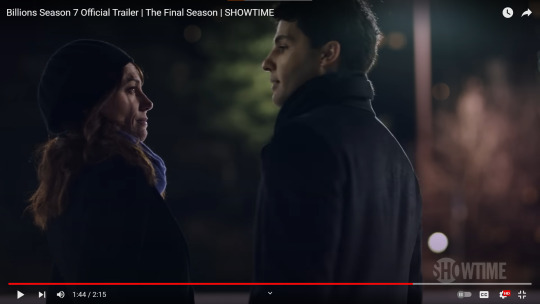
at 1:44, a shot of wendy and luke together in some outdoor location. my assumptions of wukey concretely Happening this season have largely hinged on this shot. this looks more like they’re dressed for winter weather, which we’re now getting out of as the action moves into late march / early april, so i wonder whether this was cut from an earlier episode rather than being saved for the finale.
Damian Lewis & Paul Giamatti on Reuniting for Season 7


at 0:16, chuck and axe together at prince capital, with axe wearing a metallica t-shirt. (though in this particular shot, damian at least does not appear to be in character as axe.) in 7x11, axe says regarding the axe global office that “It’ll do for now. Still have my eye on a different space for the long haul.” i think that different space may be mpc, axe’s once and future kingdom.

at 0:27, axe in a chair at axe global, again in that metallica t-shirt.
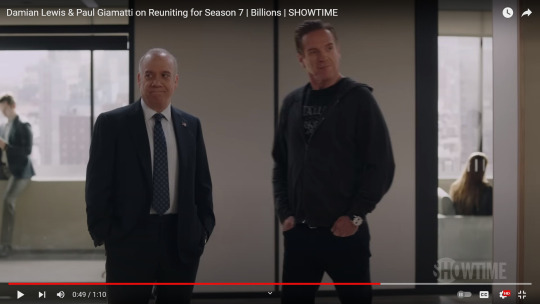
at 0:49, more of chuck and axe at prince cap, in character this time.
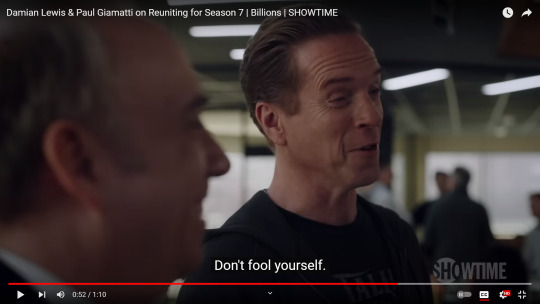

at 0:52, chuck and axe at prince cap again, with axe saying to chuck, “Don’t fool yourself. I’m not the same guy I was when we first met.”
Billions Season 7 Mid Season Trailer


at 0:17, taylor sitting at their axe global desk. they’re wearing the same outfit here as in the one shot of them in the 7x12 trailer.
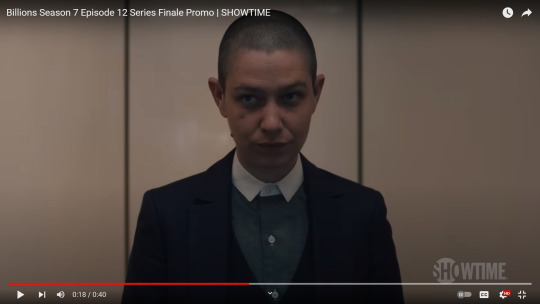
in the elevator at axe global, presumably.
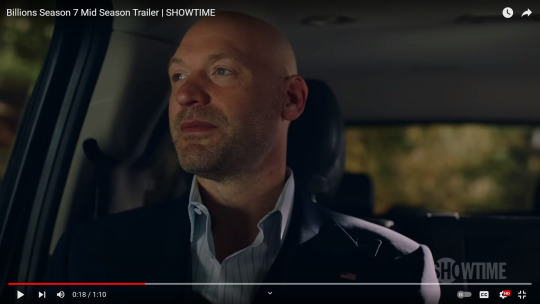

back to the mid season trailer: at 0:18, prince riding in a car. i’d guess this is the same car trip we see in the 7x12 trailer, presumably taking him to camp david.



same shirt, same american flag pin.

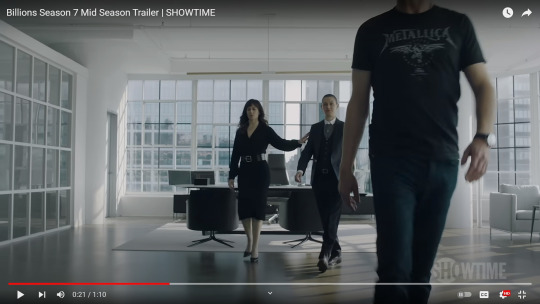
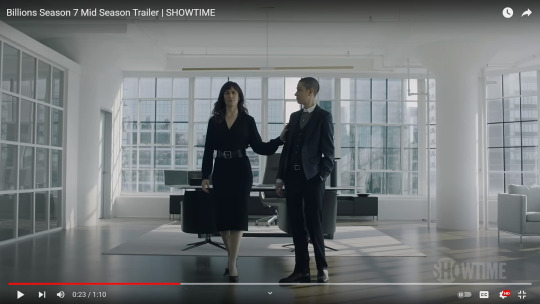
back to the mid season trailer: at 0:21, wendy, taylor, and axe walking out of an office at axe global, with axe leading the way and wendy stopping taylor from following him right out. taylor’s in that same outfit as before, and axe is in the metallica t-shirt.

at 0:24, prince angrily putting on his jacket, which bears an american flag pin. i think he’s wearing a different shirt than during the car ride, but the lighting makes it hard to be certain.



at 0:48, dollar bill & victor hugging, while ben kim & tuk hug behind them and philip & wags watch, all at prince cap. sure seems like what might happen if axe returned and reclaimed the place and brought wags and ben and tuk with him. and philip looks happy about all this!


at 0:48-0:49, axe and wendy in prince’s (possibly now axe’s again) office, as wendy steps toward axe. if the writers put this *and* that scene of wendy and luke in the finale things are gonna get real heated among certain segments of the viewership.
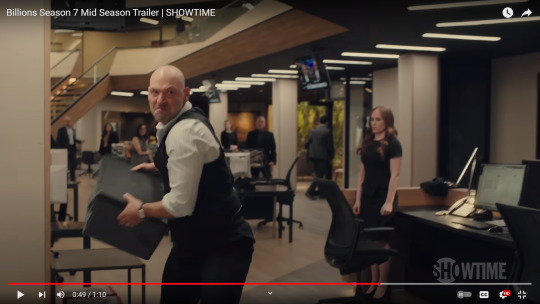

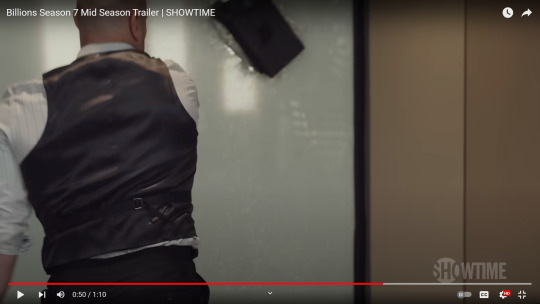
bonus: at 0:49-0:50, prince throwing the printer through wendy’s office wall. which we have seen before, but that last shot is a new angle, *and* we can see that 1) he’s in the same shirt as in that earlier shot of him putting on a jacket 2) he’s Not wearing a jacket here 3) both points also apply to two other shots of him from the 7x12 trailer

this shot where he’s in the car again and looking very unhappy.
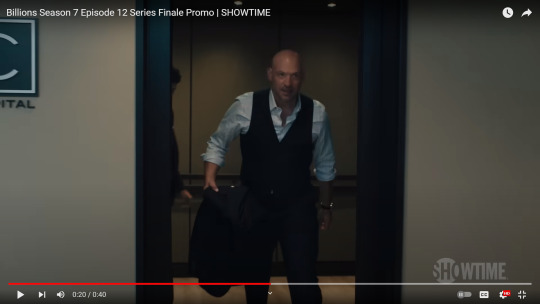
and this shot where he’s storming out of the elevator, about to ask where wendy is, and carrying his jacket.
#billions#7x12#wendy rhoades#bradford luke#chuck rhoades#bobby axelrod#taylor mason#mike prince#dollar bill stearn#victor mateo#ben kim#tuk lal#philip charyn#mike wags
7 notes
·
View notes
Text
Lol don't mind me enjoying the Jaime and Brienne scenes
youtube
by MoMonator
Lol don't mind me. Just enjoying the Jaime and Brienne scenes
#andy grammer#don't give up on me#Tate#Violet#Philip#Vera#Chandler#Monica#Joey#Phoebe#Ross#Rachel#Jaime#Brienne#Arya#Gendry#Sansa#Theon#Chuck#Blair#Zoe#Wade#Nick#Jess#Emma#Hook#Rumple#Belle#Ethan#Vanessa
0 notes